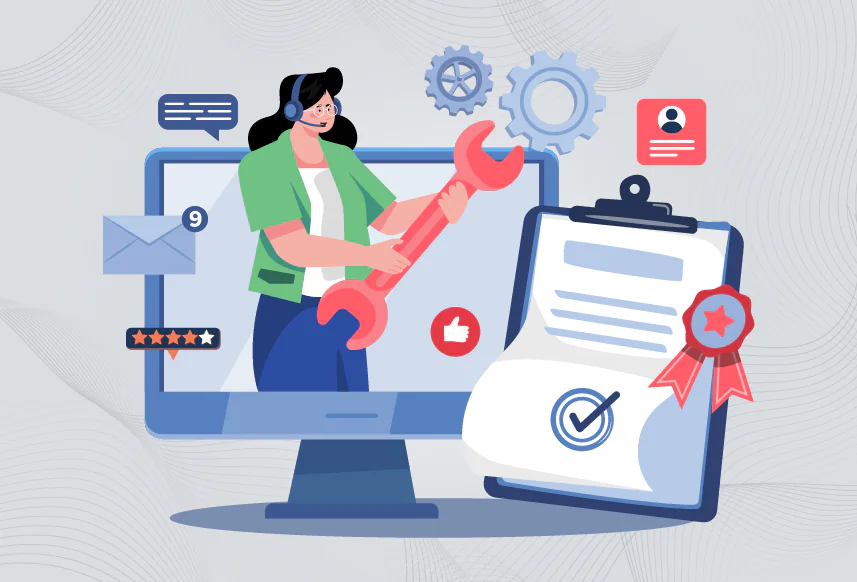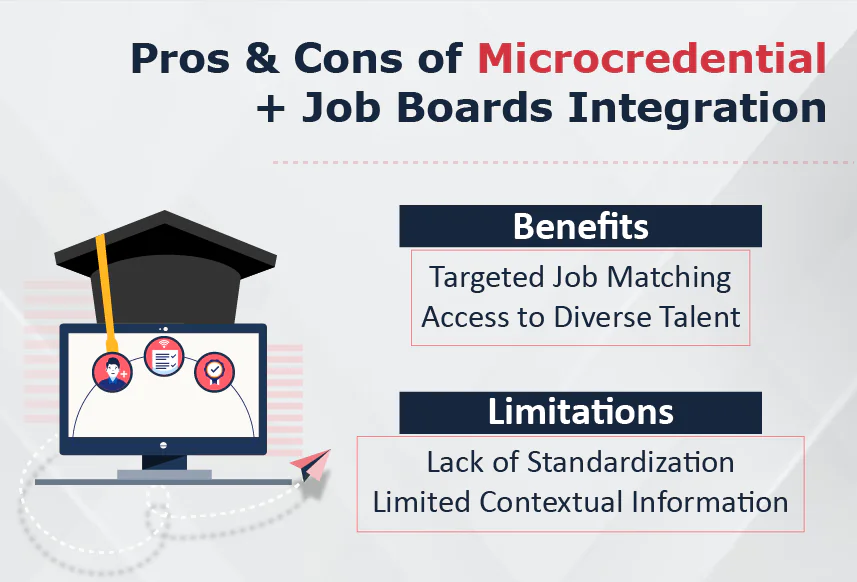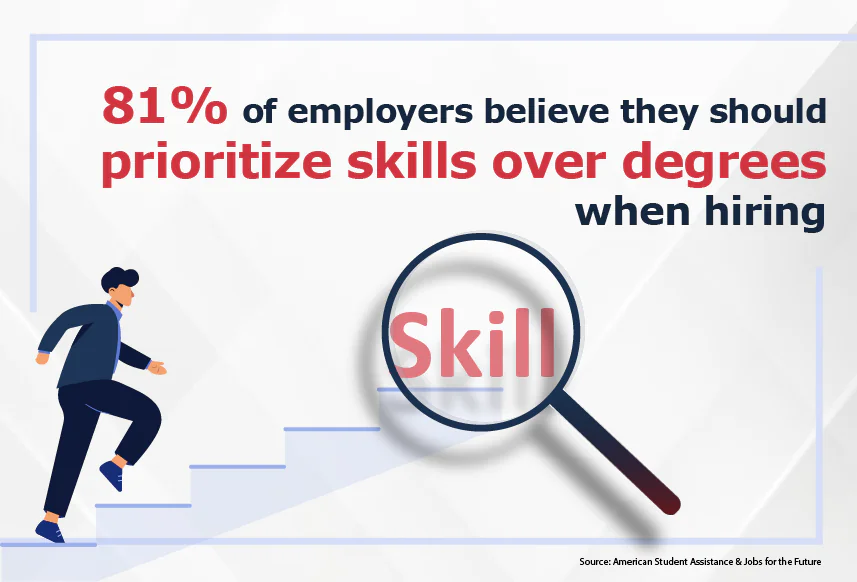
In today’s rapidly evolving world, the demand for continuous learning and skill development is more crucial than ever. Traditional education pathways often need to meet the specific needs of individuals seeking to enhance their expertise or pursue new career opportunities. This has led to the adoption of micro-credentials, a dynamic and competency-based learning approach that offers flexible alternatives to traditional educational degrees and certifications.
Simultaneously, job boards have become integral platforms for connecting job seekers with employment opportunities. These online platforms streamline recruitment, allowing employers to efficiently search for qualified candidates for a wide range of job openings.
EdTech industry leaders, including Rahul Singh, Senior Director, Harbinger Group, were part of an insightful discussion on “Embracing the Future of Education with microcredentials and Job Boards.” Watch the video to explore the power of micro-credentials and job boards to enter the future of education.
Let’s understand the concept of microcredentials and learn about the transformative potential of integrating microcredentials and job boards. Additionally, we will discuss its profound impact on education, employment, and lifelong learning.
What are Microcredentials?
Microcredentials, also known as micro-degrees or nano degrees, are on-demand short online courses that demonstrate your skills and knowledge in a particular subject area. They are a narrower range of certifications than traditional qualifications like degrees or diplomas.
What Value Do Microcredentials Provide?
How easily and based on your preferences can you opt for any online course to enhance your professional profile? With micro-credentials, you can achieve this objective. The subject areas are unlimited. Moreover, you can train yourself for both soft and hard skills development.
You can choose anything from customer service and email etiquette to back-end web development based on your requirements. And you will always have a digital badge or certification to present your skills on different job boards.

Growing Interest in Microcredentials
Microcredentials have garnered significant interest due to their ability to address the growing demand for targeted and flexible learning. They offer a valuable solution as individuals seek to enable specific skills development and acquire particular knowledge to stay competitive in the job market. Their shorter duration, focused content, and industry relevance make them appealing to professionals looking to upskill, reskill, or explore new career paths.
According to a Coursera survey, 90% of recent graduates and students said including industry microcredentials in an academic program would make them more likely to enroll in that program. 86% agreed that a micro-credential would help them succeed in their job.
Integration of micro-credentials with Job Boards
Micro-credentials are increasingly being integrated with job boards, revolutionizing the hiring process. Job seekers can showcase their skillsets and digital badges through these bite-sized credentials, enhancing their profiles and attracting employers.
Moreover, employers benefit from a more efficient talent selection process, as they can quickly identify candidates with specific competencies. However, as every coin has two sides, there may be some limitations.
Let’s dive deeper and examine the pros and cons of this integration.

Advantages
1. Targeted Job Matching
The integration enables job boards to match job requirements with micro-credentials. This alignment improves the accuracy of candidate-job fits, saving the time of employers and job seekers. Employers can identify candidates with verified skills, while job seekers can apply for positions that align with their acquired micro-credentials.
2. Access to Diverse Talent
Micro-credentials expand the talent pool by enabling job boards to include candidates with niche or emerging skills. Employers can benefit from accessing a broader range of candidates with specialized expertise that may not be captured by traditional degrees or certifications.
Disadvantages
1. Lack of Standardization
The proliferation of microcredentials from various providers may lead to inconsistencies in quality and recognition. With standardized evaluation criteria, employers may find it easier to assess the credibility and relevance of microcredentials presented on job boards.
2. Limited Contextual Information
Microcredentials often need more detailed information about the learning process and practical application of skills. Employers may face difficulty evaluating the depth and breadth of a candidate’s knowledge solely based on microcredentials, potentially leading to inaccurate assessments.
Thus, microcredentials would help you grow your skills; however, the limitations must be taken care of to maximize the benefits for job seekers and employers.

Microcredentials and Job Boards Transforming the Future of Education
In an era where traditional degrees are no longer the sole measure of competence, innovations like microcredentials and job boards provide a flexible and accessible pathway for learners to enable skills development and directly align with the job market’s needs.
Microcredentials and job boards are revolutionizing the landscape of education. They are filling gaps between those who can’t find the time to take a traditional degree course and those who have a college degree.
Furthermore, short courses and microcredentials benefit marginalized communities and those with limited resources by offering inclusive education and fostering social and economic empowerment. This global trend toward professional development represents a transformative approach that promotes lifelong learning and equitable access to quality education, driving progress toward sustainable development goals.
One key advantage of microcredentials is their focused and specific content, allowing individuals to acquire new skills or deepen existing ones in a shorter timeframe than traditional degrees or certifications. They provide a flexible learning approach that makes learning accessible to those without financial means or with no time to study.
On the other hand, job boards complement microcredentials by connecting skilled individuals with employment opportunities. Employers can search for specific skills and certifications, narrowing down their pool of applicants.
“The root of the idea is simple – you demonstrate a very specific skill, and a badge certifying that micro-credential becomes part of your digital file. Some of the earliest micro-credentialing involved computer programming skills, but it has grown far beyond that,” writes Peter Greene in a Forbes article.
An example of the transformative impact of microcredentials and job boards can be seen in digital marketing.
Suppose an individual wishes to pursue a career in digital marketing but lacks formal education in the field. They can leverage microcredentials to acquire skills such as social media management, search engine optimization, or digital advertising. Once they obtain these microcredentials, they can showcase them on job boards, increasing their visibility to potential employers who value these skills.
End Note
Flexible learning solutions like short courses and microcredentials are shaping the future of education and career pathways globally. These concise qualifications allow specific skills development that can be applied across various professional areas, providing accessible lifelong learning opportunities.
By shifting the focus from traditional degrees to targeted learning experiences, microcredentials enable individuals from diverse backgrounds to enhance their employability without committing to lengthy academic journeys.
Microcredentials also align with evolving workforce demands, ensuring learners stay current and adaptable in rapidly changing industries. The dynamic combination of microcredentials and job boards is revolutionizing education and employment, paving the way for a more skill-centric and efficient job market.
If you want to learn more about microcredentials or discuss your EdTech requirements to enhance learning experiences, we are just an email away. Contact us at contact@harbingergroup.com.





